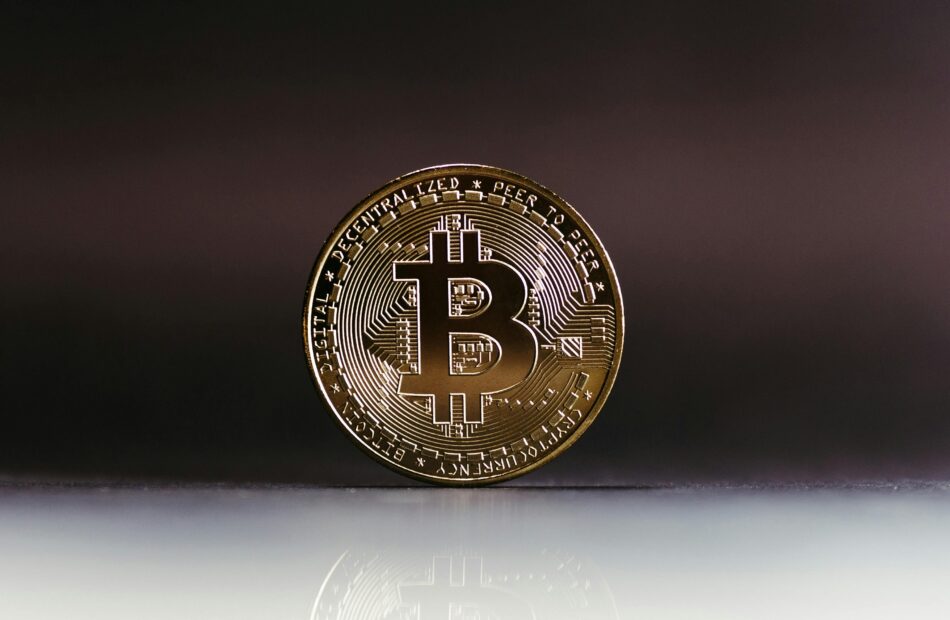A third of central banks cool on launching CBDCs over regulatory concerns
According to a recent survey conducted by a central bank-focused think tank, the majority of central banks are not yet ready to issue a central bank digital currency (CBDC). The survey, which was conducted among central bank officials from various countries, revealed that only 19% of them are considering the possibility of launching a CBDC. This is a significant decrease from 38% in 2022, indicating a shift in sentiment towards digital currencies among central banks.
The survey also found that the main reason for this reluctance is the lack of a clear understanding of the potential benefits and risks associated with CBDCs. Many central banks are still in the early stages of exploring the concept and are hesitant to make any concrete decisions without a thorough understanding of the implications.
One of the key concerns raised by central bank officials is the potential impact on financial stability. While CBDCs have the potential to improve efficiency and reduce costs, there are also concerns about the potential disruption to the traditional banking system. Central banks are also wary of the potential for CBDCs to facilitate illegal activities such as money laundering and terrorism financing.
Another factor contributing to the hesitation among central banks is the lack of a clear regulatory framework for CBDCs. With the rapid growth of the cryptocurrency market, many central banks are struggling to keep up with the pace of innovation and are unsure of how to regulate CBDCs effectively.
Despite these challenges, some central banks have already taken steps towards launching a CBDC. The Bahamas became the first country to officially launch a CBDC, the Sand Dollar, in October 2020. Other countries, such as China and Sweden, are also in the process of developing their own CBDCs.
In conclusion, while the idea of a central bank digital currency may seem appealing, it is clear that there are still many hurdles to overcome before it becomes a reality. As central banks continue to explore the potential of CBDCs and address the concerns surrounding them, it will be interesting to see how the landscape of digital currencies evolves in the coming years.
Easing inflation could ignite another BTC rally: 10x Research
Markus Thielen, the founder of 10x Research, has made a bold prediction that could have a significant impact on the cryptocurrency market. In a recent statement, Thielen stated that there is a “real possibility” of a lower CPI (Consumer Price Index) print in the United States on February 12th. This unexpected outcome could defy consensus expectations and potentially trigger a rally in the price of Bitcoin.
For those unfamiliar with the CPI, it is a measure of the average change in prices over time for goods and services purchased by households in the US. It is considered a key indicator of inflation and is closely monitored by economists and investors alike. A lower CPI print would indicate that prices are rising at a slower rate than expected, which could have a positive impact on the economy and financial markets.
Thielen’s prediction is based on his analysis of various economic factors, including the recent surge in the value of the US dollar and the potential impact of the ongoing trade war with China. He believes that these factors, combined with other market trends, could lead to a lower CPI print on February 12th.
So, what does this mean for Bitcoin? Well, according to Thielen, a lower CPI print could be a catalyst for a rally in the price of the popular cryptocurrency. This is because a lower CPI would likely lead to a decrease in interest rates, making Bitcoin a more attractive investment option. Additionally, a weaker US dollar could also drive investors towards alternative assets like Bitcoin.
Of course, Thielen’s prediction is just that – a prediction. It is impossible to know for sure what will happen on February 12th and how it will impact the cryptocurrency market. However, his insights and analysis are certainly worth considering for those interested in the world of Bitcoin and other digital currencies.
In conclusion, Markus Thielen’s bold prediction of a lower CPI print in the US on February 12th has sparked excitement and speculation in the cryptocurrency community. Whether his prediction comes true or not, it is clear that the world of Bitcoin is constantly evolving and influenced by a variety of economic factors. Only time will tell if Thielen’s foresight will prove to be accurate, but one thing is for sure – the cryptocurrency market is always full of surprises.
How to use cryptocurrency for peer-to-peer (P2P) car rentals
Cryptocurrency is revolutionizing the way we approach peer-to-peer (P2P) car rentals. With the use of blockchain technology, this innovative form of currency is streamlining the rental process, providing a seamless experience for both renters and owners.
Traditionally, P2P car rentals have been plagued with issues such as complicated payment methods, security concerns, and disputes over damages. However, with the integration of cryptocurrency, these problems are becoming a thing of the past.
One of the main advantages of using cryptocurrency for P2P car rentals is the ease of transactions. With traditional payment methods, renters often have to go through multiple steps to make a payment, which can be time-consuming and frustrating. With cryptocurrency, the process is simplified, allowing for quick and efficient transactions.
Moreover, the use of blockchain technology ensures enhanced security for both parties involved. The decentralized nature of blockchain makes it nearly impossible for hackers to manipulate or steal sensitive information. This gives renters peace of mind knowing that their personal and financial information is safe.
In addition, cryptocurrency offers a more efficient way to handle disputes. With traditional payment methods, disputes over damages or other issues can be a lengthy and complicated process. However, with cryptocurrency, smart contracts can be used to automate the resolution process, saving both time and money for all parties involved.
Furthermore, the use of cryptocurrency for P2P car rentals promotes a more inclusive and global market. With traditional payment methods, international transactions can be costly and time-consuming. Cryptocurrency eliminates these barriers, allowing for seamless transactions between individuals from different countries.
In conclusion, cryptocurrency is transforming the P2P car rental industry by providing a more efficient, secure, and inclusive experience for all involved. With its many benefits, it’s no surprise that more and more people are turning to cryptocurrency for their rental needs. So why not join the revolution and experience the future of P2P car rentals today?
xAI engineer quits after post on Grok 3 AI ranking
A recent controversy has erupted in the world of artificial intelligence (AI) after an AI engineer at xAI resigned from their position. The engineer, who remains anonymous, refused to delete a post that ranked various AI models, including the highly anticipated Grok 3. This decision has sparked a heated debate about free speech and the role of AI in our society.
The post in question was a simple ranking of AI models based on their performance and capabilities. However, it seems that xAI did not take kindly to this ranking and demanded that the engineer take it down. When the engineer refused, citing their right to free speech, they were met with termination from their job.
This incident has raised important questions about the power and influence of AI companies in controlling the narrative around their products. Should an AI company have the authority to censor or silence opinions and rankings of their products? Or should individuals have the right to freely express their thoughts and opinions, even if it may not align with the company’s interests?
Furthermore, this controversy highlights the growing importance of AI in our daily lives and the need for transparency and accountability in the development and use of these technologies. As AI continues to advance and become more integrated into our society, it is crucial that we have open and honest discussions about its capabilities and limitations.
The resignation of the xAI engineer serves as a reminder that the ethical implications of AI must be carefully considered and addressed. It is not enough to simply create and use these technologies without considering the potential consequences. As we continue to push the boundaries of AI, we must also ensure that we are upholding the values of free speech and promoting open dialogue and debate.
In the end, this controversy may have a silver lining as it brings attention to the importance of protecting free speech and promoting responsible development and use of AI. Let us hope that this incident sparks meaningful discussions and actions towards a more transparent and ethical future for AI.
IRS wants court to toss crypto exec’s appeal over bank record summons
The United States Internal Revenue Service (IRS) has recently come under fire for its actions in obtaining financial records from banks related to cryptocurrency founder Rowland Marcus Andrade. The agency has been accused of violating financial privacy laws, but the IRS maintains that it acted within its legal rights.
According to the IRS, it issued summonses to several banks in order to obtain financial records for Andrade, who is the founder of a cryptocurrency company. The agency claims that it followed proper procedures and obtained the necessary approvals before issuing the summonses. However, Andrade’s legal team argues that the IRS did not have sufficient evidence to justify the summonses and that they were issued without proper oversight.
This case highlights the ongoing debate surrounding the privacy of financial records and the government’s ability to access them. While the IRS argues that it has the authority to obtain these records in order to enforce tax laws, critics argue that the agency’s actions are a violation of individuals’ rights to financial privacy.
The controversy surrounding this case also raises questions about the regulation of the cryptocurrency industry. As the use of digital currencies continues to grow, there is a growing need for clear guidelines and regulations to ensure that individuals and companies are complying with tax laws and other financial regulations.
In the meantime, Andrade’s legal team is fighting the IRS’s actions and seeking to protect their client’s financial privacy. The outcome of this case could have significant implications for the future of financial privacy and the regulation of the cryptocurrency industry.
In conclusion, the IRS’s actions in obtaining financial records from banks related to cryptocurrency founder Rowland Marcus Andrade have sparked a heated debate about financial privacy and government regulation. As this case unfolds, it will be interesting to see how it impacts the future of the cryptocurrency industry and the protection of individuals’ financial information.
Trump plans to pick a16z head of pPolicy Brian Quintenz as CFTC chair: Report
According to recent reports, President Donald Trump is considering appointing Brian Quintenz as the next chair of the Commodity Futures Trading Commission (CFTC). Quintenz, who currently serves as the head of policy at a16z’s crypto arm, has emerged as a top candidate for the position.
This potential appointment comes at a crucial time for the CFTC, as the agency plays a crucial role in regulating the rapidly growing cryptocurrency market. With the recent surge in interest and investment in digital assets, the need for effective and knowledgeable leadership at the CFTC has become more pressing than ever.
Quintenz’s background and experience make him a strong contender for the role. Prior to joining a16z, he served as a senior advisor to former CFTC chairman Christopher Giancarlo, where he played a key role in shaping the agency’s policies on cryptocurrency and blockchain technology. He also has a deep understanding of the financial markets, having worked as an investment manager and trading technology entrepreneur.
If appointed, Quintenz would bring a wealth of knowledge and expertise to the CFTC, particularly in the area of cryptocurrency regulation. His experience at a16z’s crypto arm has given him a unique perspective on the industry and its potential for growth and innovation. This could prove invaluable in navigating the complex and ever-evolving landscape of digital assets.
Furthermore, Quintenz’s appointment would also signal the Trump administration’s recognition of the importance of the cryptocurrency market and its potential impact on the economy. With his background and expertise, Quintenz would be well-equipped to lead the CFTC in effectively regulating this emerging market and ensuring its continued growth and success.
Overall, the potential appointment of Brian Quintenz as the next chair of the CFTC is a promising development for the cryptocurrency industry. It reflects a growing recognition of the importance of digital assets and the need for strong and knowledgeable leadership in regulating them. As the market continues to evolve, Quintenz’s appointment could pave the way for a more secure and prosperous future for the cryptocurrency industry.
US and UK decline to sign international agreement for ethical AI
The United States and United Kingdom have recently made headlines for their decision to not sign an international agreement on artificial intelligence (AI). This move has sparked controversy and raised concerns about the future of AI regulation.
The agreement, known as the Global Partnership on Artificial Intelligence (GPAI), was signed by 14 other countries including Canada, France, and Germany. Its goal is to promote responsible and ethical development and use of AI technology. However, the US and UK have chosen not to join, citing concerns about potential negative impacts on the industry.
US Vice President JD Vance has been vocal about his opposition to the GPAI, stating that “excessive regulation of the AI sector could kill a transformative industry.” This sentiment is shared by many in the tech industry, who argue that strict regulations could stifle innovation and hinder the growth of AI.
On the other hand, critics of the US and UK’s decision argue that without proper regulation, AI could have dangerous consequences. They point to the potential for biased algorithms and the misuse of AI in surveillance and warfare. Without international cooperation and guidelines, these issues could go unchecked.
The decision not to sign the GPAI also raises questions about the US and UK’s commitment to ethical AI development. Both countries have faced criticism for their lack of regulation in the tech industry, particularly in regards to data privacy. By not joining the GPAI, they are sending a message that they prioritize industry growth over ethical considerations.
As the use of AI continues to expand and impact our daily lives, it is crucial to have international cooperation and guidelines in place. While the US and UK may have their reasons for not signing the GPAI, it is important for them to address the concerns and work towards finding a balance between innovation and responsible use of AI.
Altcoins ‘hardly sold off’ as Fed casts doubt over future rate cuts
Federal Reserve Chair Jerome Powell recently made a statement that there is “no need to hurry” when it comes to implementing rate cuts. This news did not cause a significant sell-off in the cryptocurrency market, leading one analyst to declare that we may have reached a bottom.
Powell’s comments came after the Federal Reserve’s decision to cut interest rates by 0.25% in July, the first cut in over a decade. Many investors were hoping for a more aggressive cut, but Powell emphasized that this was a “mid-cycle adjustment” and not the start of a long series of cuts.
Despite this, the cryptocurrency market remained relatively stable, with Bitcoin even experiencing a slight increase in value. This is in stark contrast to previous instances where any news from the Federal Reserve would cause a significant sell-off in the crypto market.
One analyst, Mati Greenspan, believes that this lack of reaction from the crypto market is a sign that we may have reached a bottom. Greenspan stated, “If the market can shrug off a Fed rate cut, it’s a sign that the bottom is in.”
This sentiment is shared by many in the crypto community, who have been eagerly awaiting a market recovery after the prolonged bear market. While there is still uncertainty and volatility in the market, the lack of a sell-off in response to Powell’s comments is seen as a positive sign.
It’s important to note that the crypto market is not entirely immune to traditional financial markets, and there are still factors that can affect its performance. However, the lack of a significant reaction to Powell’s statement shows that the market may be becoming more resilient and less reliant on external factors.
In conclusion, Powell’s comments and the market’s reaction to them have sparked hope for a potential market bottom in the cryptocurrency world. While it’s still too early to make any definitive statements, the lack of a sell-off is a positive sign for investors and may indicate a shift in the market’s behavior.








